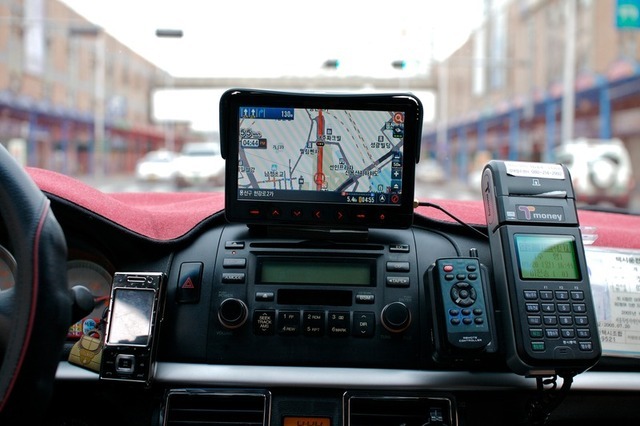
Embattled wholesale satellite broadband contender LightSquared has taken off the gloves. The company has asked the Federal Communications Commission for a "declaratory ruling" confirming its right to use spectrum licensed to the company by the FCC. Not only that, but LightSquared wants the Commission to confirm that GPS makers—who have been complaining of interference risks for months—lack any legal basis to ask for interference protections.
"It is clear that GPS devices are purposefully designed to look into LightSquared's licensed spectrum, and given this evidence, we believe decision-makers should consider LightSquared's legal rights as the licensee," declared LightSquared public policy vice president Jeff Carlisle in a press statement released today.
Commercial GPS device sellers have had "nearly a decade to design and sell devices that do not infringe on LightSquared's licensed spectrum. They have no right to complain in the eleventh-hour about incompatibility when they had ample opportunity to avoid this problem."
Chances are that the GPS industry will not be surprised or cowed by these claims. "LightSquared is determinedly attempting to control the public narrative, seizing upon this proceeding not to provide the information that the Bureau has sought," charged Paul Rodriquez of the US GPS Industry Council on Tuesday, "but simply to exploit it as an additional forum for its campaign of proof by assertion." The GPS industry filing with the FCC's LightSquared Technical Working Group docket arrived even before LightSquared submitted its latest petition.
General purpose interference
LightSquared is engaged in what has become a pitched regulatory battle to deploy satellite delivered LTE broadband on a wholesale basis across the Mobile-Satellite Service (MSS) region (1525-1559 MHz). Just about every moment in its application has become a press release battle with the GPS industry. When last we left the drama—LightSquared was protesting the leaked results of the latest government tests on the interference question. They concluded that the company's proposed signals harmfully slam into GPS devices around 75 percent of the time.
"This came from someone in the government process and it is an outrage," declared LightSquared Executive Vice President Martin Harriman. Perhaps so, but several days later the Pentagon and Department of Transportation confirmed the gist of the latest round of exams.
Preliminary analysis of the test findings found no significant interference with cellular phones. However, the testing did show that LightSquared signals caused harmful interference to the majority of other tested general purpose GPS receivers. Separate analysis by the Federal Aviation Administration also found interference with a flight safety system designed to warn pilots of approaching terrain.
For months LightSquared has argued that it has a series of workarounds for interference problems. These include lower power deployments and restricting its transmissions to a smaller portion of its allocated spectrum. But now the company is foregrounding arguments that call into question the legal foundation for interference appeals.
Failed to heed
Bottom line (argues LightSquared), GPS devices don't just tune into the RNSS band, where they are authorized to operate, but to the MSS band as well. That's not LightSquared's problem, they claim, that's the GPS industry's problem. The petition comes complete with a lengthy history of the MSS band that suggests that everybody has known for a decade that this issue would come to a head.
"While the deployment of terrestrial transmitters in the MSS band has been expected for almost a decade, the commercial GPS industry has failed to take that eventuality into account in designing and selling GPS receivers," LightSquared contends. Specifically, GPS makers have "failed to heed" FCC language requiring manufacturer to build receivers "reflecting the state of the art" regarding interference risks.
Thus LightSquared wants various declarations from the FCC, prominent among them that commercial GPS receivers "lack standing" to file interference and protection complains. The company also wants the Commission to say that:
- Commercial GPS devices that receive GPS signals in the MSS band are "nonconforming" and inconsistent with the MSS allocation in that band, and as such are not entitled to any "protection" regardless of whether they are licensed.
- The costs of ensuring that GPS devices are compatible with adjacent band operations—including any costs necessary to retrofit legacy devices—are the responsibility of GPS manufacturers [or "at minimum" are not the obligation of LightSquared].
The GPS industry filing counters that LightSquared's account of events are "not even possible, let alone factual," tracing the relatively new company's proposals back to November of 2010.
As for charges of poor GPS design: "LightSquared's problem is not the design of GPS receivers," but the "dramatic changes in spectrum use it proposes" in its operating environment, "a circumstance of which it should have been aware before it proposed terrestrial-only operation."
Sprint deadline
Another complication: LightSquared has a network sharing arrangement with Sprint that requires the former to get a green light from the FCC. The agreement gives LightSquared access to spectrum hosting and network services over an eleven year period, but the deadline for Commission approval is looming.
Judging by the statement we received from Sprint today, the telco is willing to give its partner lots of slack on this issue. Both companies have "realigned our deployment timeline to coincide with potential FCC actions," Sprint notes, but "the deal between the parties remains intact."
Sprint "supports LightSquared's business plans and efforts to resolve potential interference issues expediently," the statement concludes. But: "the agreement includes protections for Sprint relating to LightSquared's requirement to receive FCC approvals."
Listing image by Photograph by Nicolas Nova
reader comments
280